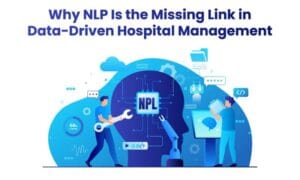
EMR software and EHR software are both digital health record management systems that securely store patient health and other information. There are, however, some significant distinctions between the two systems. The main difference between an electronic medical record (EMR) software and an electronic health record (EHR) software is that an EHR software is more comprehensive than an EMR software.
An electronic medical record (EMR) software is a digital form of a patient’s paper medical record, while an electronic health record (EHR) software is a digital record of a patient’s entire health data.
What is Electronic Medical Record (EMR) software?
Electronic medical record (EMR) software are online medical records that contain standard medical and clinical data from a single provider’s office and are generally utilised for diagnosis and treatment by doctors.
Electronic medical record (EMR) software is typically used by a healthcare provider or hospital, and they store information about a patient’s current visit such as their medical history, medications, allergies, and diagnostic test results.
EMRs are not designed to be interoperable, which means that they cannot be shared with other healthcare providers. The patients must take paper-based medical records when they visit other providers.
What is Electronic Health Record (EHR) Software?
Electronic health record (EHR) software are real-time, patient-centred records that make information available to authorized users fast and securely. The designing of an EHR software is make you go beyond basic clinical data obtained in a provider’s office and can include a more comprehensive view of a patient’s care.
On the other hand, electronic health record (EHR) software is competent across multiple healthcare providers and organizations, and they store a patient’s entire health history of every visit.
The design of EHRs is very interoperable that facilitates seamless sharing with other healthcare providers and organizations. This can help to improve the coordination of care, which can lead to better outcomes for patients.
An electronic health record (EHR) software stores more information than an electronic medical record (EMR) software, such as:
- Patient demographics data
- Treatment plan
- Medical history
- Current and past medications
- Allergies
- Immunizations
- Diagnostic test results
- Radiology Images
- Reports
- Payment details
- Attach Documents
- Communication
Key differences between Electronic Medical Record Software and Electronic Health Record Software
Here is a summary of the key differences between EMR Software and EHR Software:
| Feature | EMR Software | EHR Software |
| Definition | A digital version of a patient’s paper medical record | A digital record of a patient’s entire health data |
| Scope | Limited to the data contained in a patient’s paper medical record of a visit. | More comprehensive, including patient demographics data, clinical data from multiple sources such as lab, radiology, pharmacy, OP, IP, day-care, and billing data. |
| Interoperability | Not designed to be interoperable | Designed for interoperable for coordinated patient care. |
| Benefits | Improved accuracy and efficiency, better communication, increased patient satisfaction | Improved efficiency, accuracy, communication, patient safety, improved coordination of care, patient engagement, and patient satisfaction. |
| Implementation | Less complex | More complex |
| Training | Less time to train hospital staff | More time needed to train hospital staffs. |
| Vendors | Many vendors offer legacy EMR software. | New age health IT companies offer comprehensive EHR software as part of hospital management system integrated with all the departments. |
| Adoption | Providers are still using EMR software, but many start transition to EHR software. | Providers started opting for EHR software as it is a comprehensive system and government regulations, and insurance companies suggest them to use it. |
| Cost | Less expensive | More expensive |
Benefits of Electronic Health Record (EHR) Software
Considering electronic health record (EHR) software for your healthcare practice has more benefits than EMR software.
- Patient data security and safety: EHR software can help to identify and prevent potential medical errors.
- Comprehensive Health Data View: EHR software makes it easier for healthcare providers to share patient information for better and accurate patient care.
- Patient Engagement: Patients often prefer to use their electronic health records because they can access their own medical information via patient portal or patient mobile app more easily and quickly.
- Cost Savings & Enhanced Effectiveness –EHR Software can considerably reduce administrative costs while also simplifying care coordination and shortening the time it takes for doctors, labs, and pharmacies to communicate.
- Reduced Errors -EHR software allows for improved tracking and more standardised recording of patient contacts, potentially reducing error. Illegible handwriting in physicians’ notes or prescriptions is no longer an issue, and coding for procedures or billing is simplified.
Conclusion
Overall, implementing electronic health record (EHR) software is more efficient than electronic medical record software. Also, the use of EHR software has become common in the healthcare industry across India. EHR software provides a more comprehensive view of a patient’s health history. With more effective EHR providers get access to a patient’s complete medical history. The software can help you to manage multiple providers and helps to improve patient engagement and care.
If you are considering implementing a digital health system, I encourage you to choose an EHR software.
Contact us for more info or book a demo for Ezovion EMR Software.





